PlanetScale
PlanetScale is a database platform designed for serverless applications. It is MySQL compatible, provides auto-scaling, multi-region replication, and aims to make database management simple.

PlanetScale: Serverless Database Platform
MySQL compatible, auto-scaling, multi-region replication, and simple database management for serverless applications
What is PlanetScale?
PlanetScale is a relational database platform built for serverless applications. It is designed to be highly scalable, reliable, and easy to use.
Key features of PlanetScale include:
- MySQL compatibility - Uses the MySQL protocol and SQL syntax, making it easy to migrate existing applications.
- Auto-scaling - The database scales up and down automatically based on usage, without capacity planning.
- Multi-region replication - Data is replicated to multiple regions for high availability and global access.
- Serverless execution - Computation happens in ephemeral containers, only using resources when queries are executed.
- Easy database management - Handles complexity of tasks like replication, failover, backups, so developers can focus on applications.
- Pay-as-you-go pricing - Only pay for the compute resources used to run queries.
PlanetScale aims to make scalable databases accessible for applications where deploying and managing traditional databases would be overkill. Its automation and serverless architecture suits modern applications with dynamic workloads.
PlanetScale Features
Features
- Serverless MySQL database
- Auto-scaling
- Multi-region replication
- MySQL compatible
- Designed for serverless applications
Pricing
- Freemium
Pros
Automatic scaling
High availability
Easy to use
Open source
Cost effective
Cons
Limited features compared to full MySQL
Still relatively new product
Limited ecosystem integration
Official Links
Reviews & Ratings
Login to ReviewThe Best PlanetScale Alternatives
Top Development and Database and other similar apps like PlanetScale
Here are some alternatives to PlanetScale:
Suggest an alternative ❐SQLite
SQLite is an in-process library that implements a self-contained, serverless, zero-configuration, transactional SQL database engine. The code for SQLite is in the public domain and is thus free for use for any purpose, commercial or private.SQLite is the most widely deployed database in the world - it is used in...
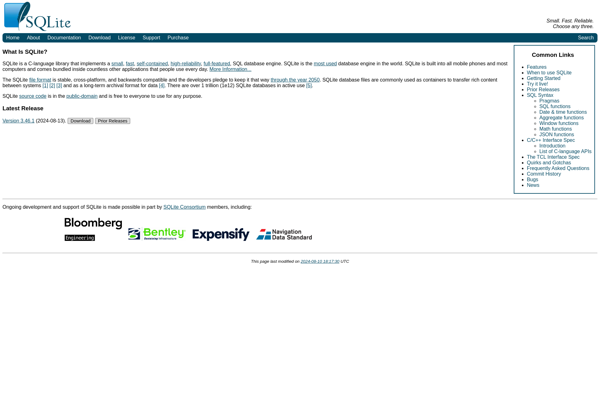
MongoDB
MongoDB is an open-source, document database designed for ease of development and scaling. Some key advantages of MongoDB include:Document Model: MongoDB stores data in flexible, JSON-like documents rather than rows and columns used in traditional RDBMS. This allows for dynamic schemas and easy data manipulation.Scaling: MongoDB is highly scalable and...
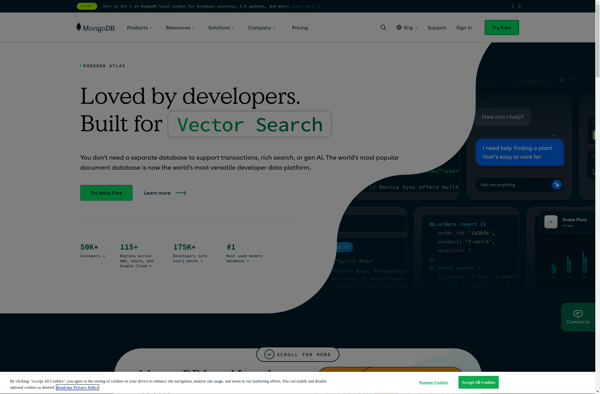
PostgreSQL
PostgreSQL is a powerful, open source object-relational database system with over 30 years of active development. It has earned a strong reputation for its proven architecture, reliability, data integrity, robust feature set, extensibility, and the dedication of the open source community behind the software to consistently deliver performant and innovative...
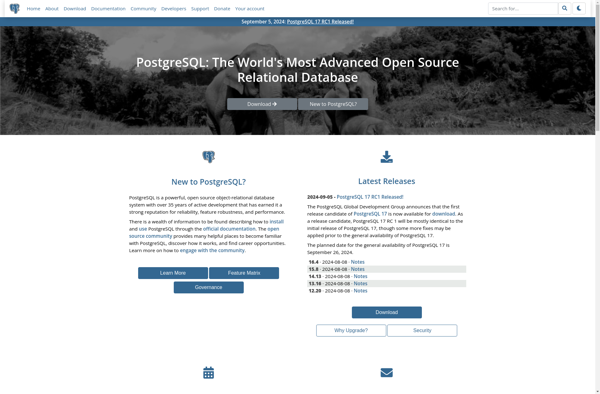
MySQL Community Edition
MySQL Community Edition is a free and open source relational database management system (RDBMS). It uses Structured Query Language (SQL) and is one of the most popular database servers used for web applications. Some key features include:High performance database engine with support for high volume data and concurrent usersCross platform...
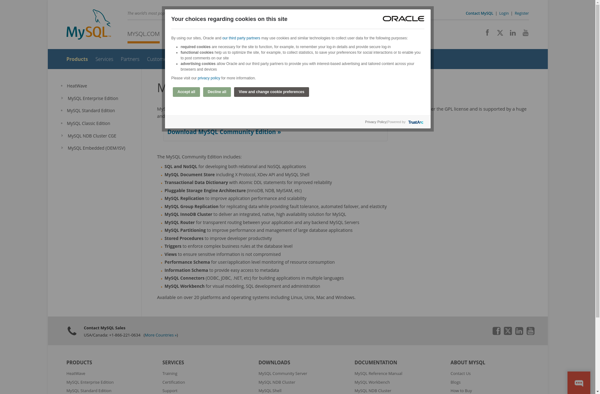
MariaDB
MariaDB is an open source relational database management system, created as a drop-in replacement for MySQL. It is developed by some of the original developers of MySQL and is intended to remain free and open source software under the GNU GPL.After Oracle acquired MySQL in 2010, the founders of MySQL...
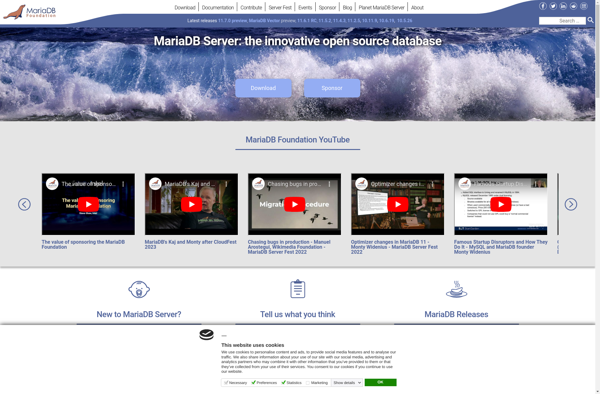
Apache Cassandra
Apache Cassandra is a free, open-source, distributed NoSQL database management system designed to handle large amounts of data across many commodity servers, providing high availability with no single point of failure.Key features of Cassandra include:Decentralized architecture with no single point of failureLinear scalability and proven fault-tolerance on commodity hardwareFlexible data...
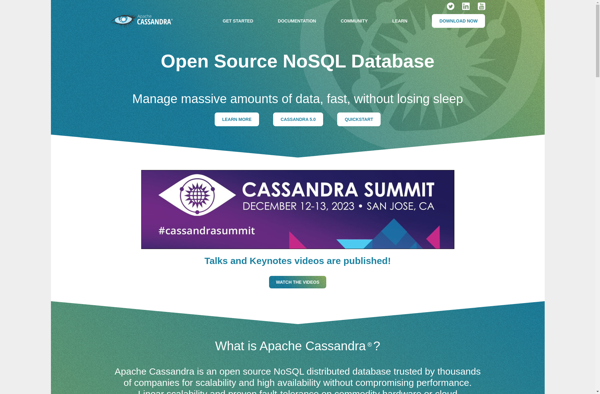
CouchDB
CouchDB is an open-source NoSQL document-oriented database that focuses on ease of use and scalability. It uses a document-based data model that maps neatly to objects in web applications and fits better with object-oriented programming techniques compared to a relational database structure.Some key features and aspects of CouchDB include:JSON documents...
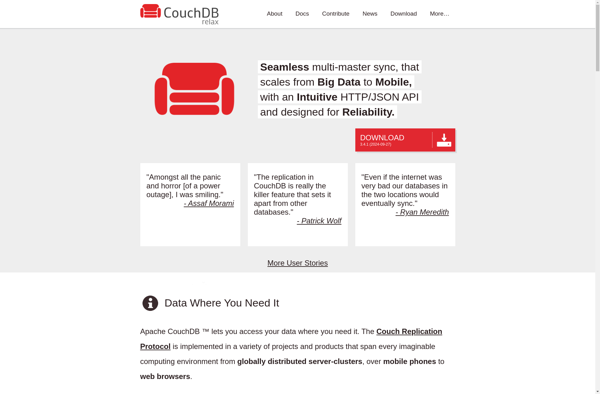
Heroku
Heroku is a cloud platform as a service (PaaS) that streamlines the process of building, deploying, and scaling applications. Founded in 2007 and later acquired by Salesforce, Heroku has become a popular choice for developers seeking a straightforward and scalable platform for hosting web applications. Heroku abstracts much of the...

Microsoft SQL Server
Microsoft SQL Server is a relational database management system (RDBMS) developed by Microsoft. It is used for storing, retrieving, managing and analyzing data. SQL Server supports both online transaction processing (OLTP) and data warehousing workloads. Key features include:Support for structured, semi-structured and unstructured dataIn-Memory OLTP for faster transaction processingColumnstore indexes...
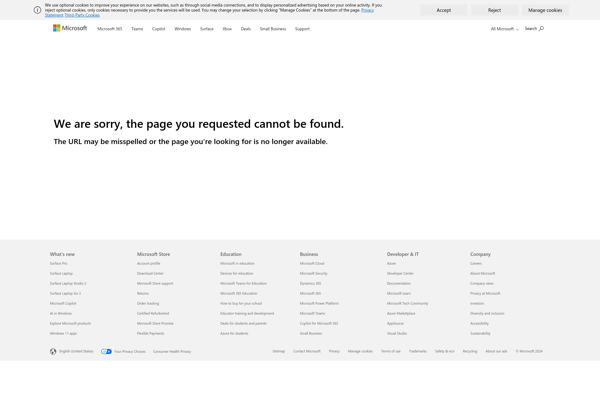
ArangoDB
ArangoDB is a native multi-model database system that supports multiple data models in one core engine and database system. The supported data models include graphs, documents (JSON documents), and key-value pairs. Using a single database system for multiple data models eliminates expensive data integration between systems and enables new graph...

ClusterControl
ClusterControl is an open source web-based management and monitoring tool for MySQL, MariaDB, MongoDB, PostgreSQL and other database clusters. It provides the following key capabilities:Visual interface for managing, monitoring and administrating database clustersCentralized monitoring and alerting for multiple clusters from a single dashboardAutomated management functions like instance creation, replication setup,...
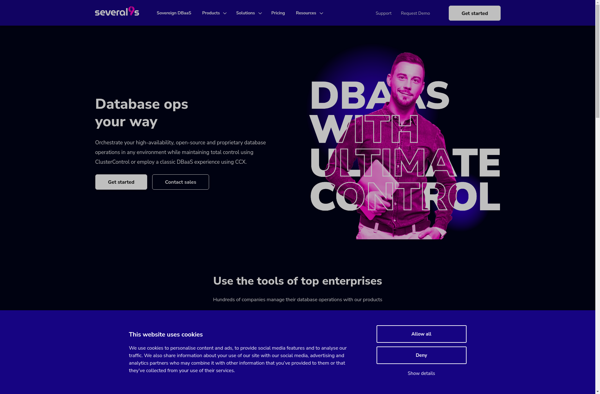
Barman
Barman (Backup and Recovery Manager) is an open-source administration tool for disaster recovery of PostgreSQL servers. It allows remote backups of multiple servers, Point-in-Time Recovery, backup cataloguing, backup compression and encryption, retention policies, and more.Key features of Barman include:Backup from master or standby PostgreSQL serversIncremental backup based on WAL filesBackup...
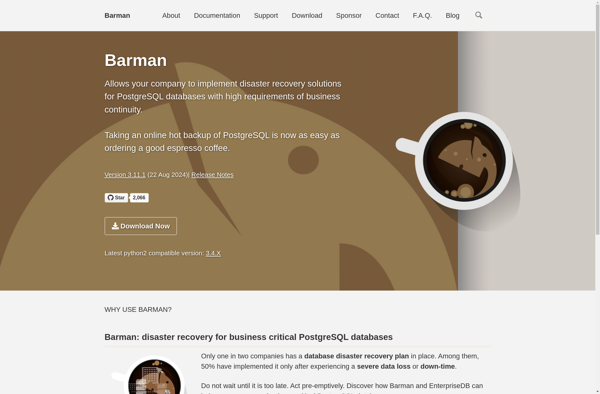
VistaDB
VistaDB is an embedded database engine for .NET applications. It allows developers to integrate a full-featured SQL database into their .NET applications without the need for any external database servers or client software.Some key features of VistaDB include:ACID-compliant transaction processingSQL access via ADO.NET interfacesSmall footprint - less than 1MB DLLNo...
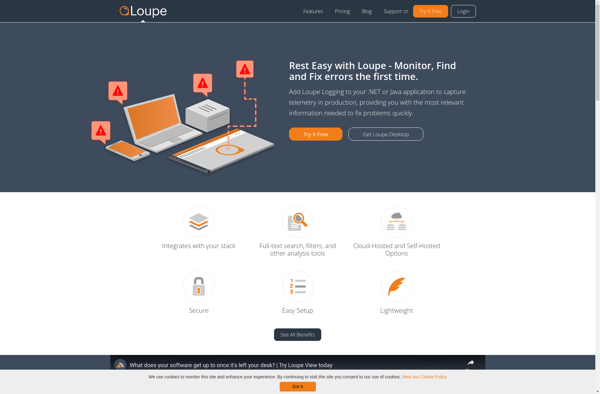
Pyzdb
pyzdb is an open-source Python library that provides an object-relational mapping (ORM) and database abstraction layer for SQL databases. It aims to simplify database access and integrate seamlessly with Python code.Some key features of pyzdb include:Intuitive Pythonic interface for interacting with databases - avoids the need to write SQL queries...
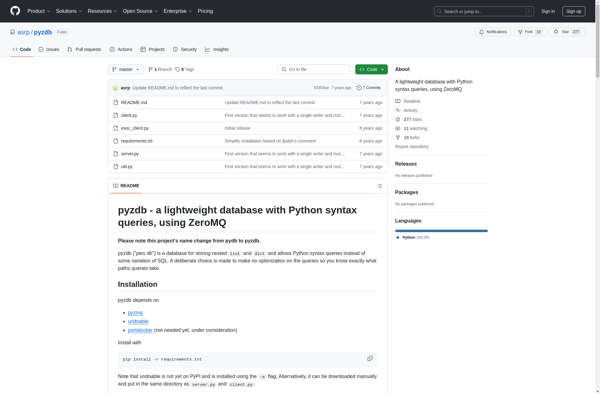
Tibero
Tibero is a relational database management system developed by TmaxSoft. It is designed for high performance, reliability, and efficiency, making it well-suited for mission-critical applications.Some key features and benefits of Tibero include:Column-based data storage and compression techniques that provide faster queries and analysis while using less storage.Support for parallel queries...
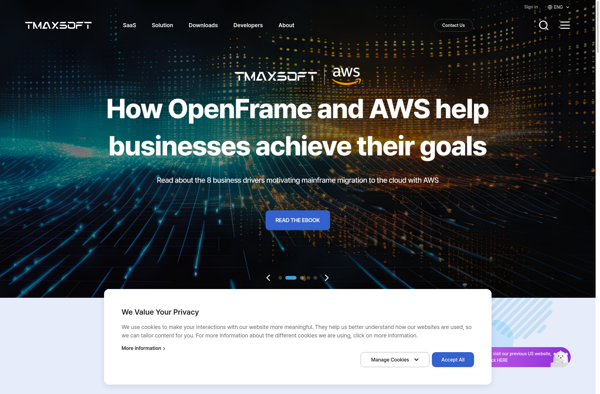
DropConfig
DropConfig is an infrastructure automation and configuration management tool released under an open-source license. It allows system administrators and DevOps engineers to manage the configuration of servers, networks, containers, storage systems, and other infrastructure programmatically using code instead of manual processes.Key capabilities and benefits of DropConfig include:Infrastructure as Code -...
